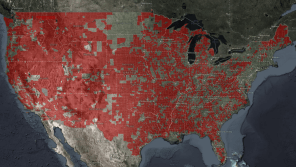Trump proposal to end Digital Equity Act is ‘serious setback,’ says state broadband chief

The leader of the Washington State Broadband Office said Wednesday morning that President Donald Trump’s proposal to end the Digital Equity Act would dole out “significant consequences” to the state’s efforts achieve digital equity, and harm its economic and cybersecurity postures.
During a press conference with U.S. Sen. Patty Murray, D-Wash., who vice chairs the Senate Appropriations Committee and was an author of the Digital Equity Act, Aaron Wheeler, director of WSBO within the state’s Department of Commerce, said loss of federal funding from the act’s programs would create a “serious setback.” Some consequences he said the state would face include a slower implementation Washington’s Digital Equity Plan, which included the goals of expanding broadband access, increasing affordability, providing digital literacy training and boosting device accessibility.
“Washington state’s Digital Equity Plan relies on this federal funding as a pillar to implement its strategies,” Wheeler said. “These strategies are designed to address gaps in existing digital inclusion efforts and aligned with statewide priorities to improve outcomes in areas such as economic and workforce development, education, health care and civil engagement.”
He said canceling the program would widen the digital divide and degrade economic growth.
“It will hurt our ability to close the digital divide, reduce reach, fewer individuals and communities would benefit from from digital equity initiatives, particularly those in underserved areas, including low income housing, seniors and individuals with disabilities, it will increase inequalities,” he continued. “The state’s economic growth and competitiveness will be negatively impacted as a lack of digital equity limits workforce development and participation in our new digital economy and increased reliance on state and local funding.”
Wheeler said that to carry on the mission of the Digital Equity Plan, Washington would need to find alternative funding sources. He said this process could strain state and local budgets “at a time our state is already facing a challenging budget environment.” The state recently passed its biennial budget, but is among several states facing budget shortfalls due to rising costs associated with revenue dips and inflation.
And while it should take an act of Congress to undo the Digital Equity Act, Wheeler said his office and Washington state is already feeling the impact of cuts to federal digital equity programs. Wheeler said his team had just awarded grants from its Advanced Cybersecurity Literacy Program — which was funded last December through the Digital Equity Act’s $1.44 billion State Digital Equity Capacity Grant Program to the tune of nearly $16 million.
Washington’s cybersecurity program was meant to develop a curriculum that would have rolled out across the state to help educate and protect vulnerable individuals who were often targets of online scams. Then last week, Wheeler said, his office got the notice that the grant had been canceled.
“We’ve all seen stories about victims of these complex online crimes and the impacts they can have when they fall victim to online fraud. Our cybersecurity work would have helped prevent this by providing education about the online risks everyone faces. The program would have provided the tools people need to avoid these scams,” he said. “[Not] having this vital program will expose millions of Washingtonians to residents to cybersecurity risks, weaken the economic framework of Washington’s communities, set back educational workforce opportunities, and the long term costs of security breaches, cyber theft and public trust will outweigh any short term budget savings.”
Complaints of the president’s proposal aren’t only coming from Washington state. Christopher Mitchell, who leads a broadband initiative at the nonprofit Institute for Self Reliance, said withholding the funding will result in slower internet that costs more.
“President Trump’s actions are an attempt to undermine Congressional authority, reversing Congress’s authorization of funds to ensure all Americans could access the multi-generational networks envisioned through the $42.5 billion BEAD rural broadband program,” Mitchell said in an emailed statement. “The President’s claim that the Digital Equity Act is a racist program is demonstrably false. In fact, the Digital Equity Act is focused on groups that include older adults, people living in rural regions, veterans, Americans with disabilities, and others who have been substantially left behind in the information age.”






